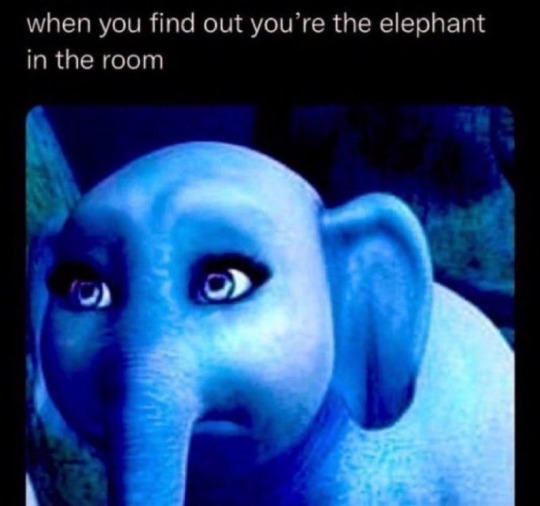#Alexandra Burke Elephant
Text
15 de junho de 2012
Maybe you are viewing this post looking wrong on your Tumblr dashboard. To see the post in the correct and beautiful layout, visit my Tumblr! And don't forget to follow me!
57ª semana
15 de junho de 2012
1223
+6
1223
+6
14
025
01

Elephant
Alexandra Burke, Erick Morillo
106
1
1
2

E.T.
Katy Perry, Kanye West
105
52
1
3

Princess of China
Coldplay, Rihanna
82
22
1
4
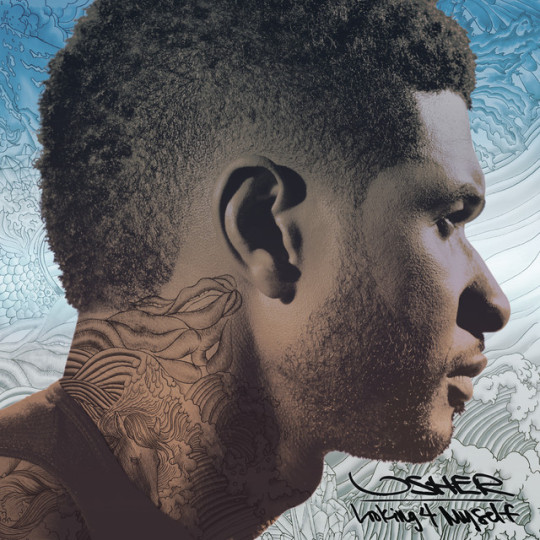
Show Me
Usher
75
1
4
5

Video Games
Lana Del Rey
67
2
4
6

Blue Jeans
Lana Del Rey
61
2
3
7

Club Banger Nation
Nicole Scherzinger
60
3
5
8
Milk Milk Lemonade
Katy Perry
59
8
1
9

Electric Feel
Katy Perry
58
2
1
10

Born This Way
Lady Gaga
45
9
4
11

Pearl
Katy Perry
44
9
11
12

Right By My Side
Nicki Minaj, Chris Brown
43
1
12
13

Heartbreak on Hold
Alexandra Burke
40
1
13
14

Cinderella's Eyes
Nicola Roberts
39
1
14
15
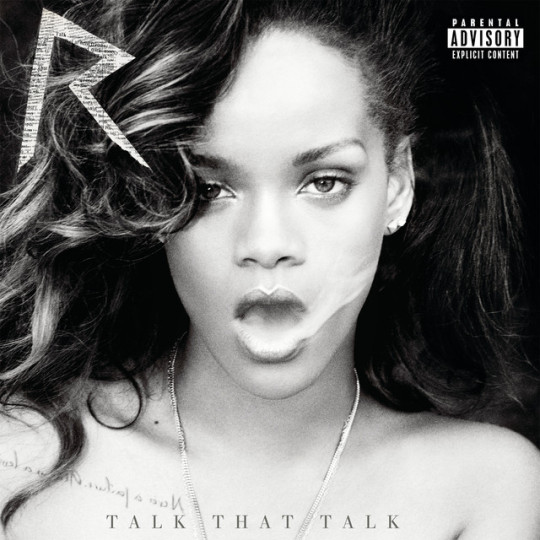
We All Want Love
Rihanna
38
6
7
16

Wonderland
Natalia Kills
37
11
5
17

Government Hooker
Lady Gaga
35
5
2
18

Roc Me Out
Rihanna
34
1
18
19
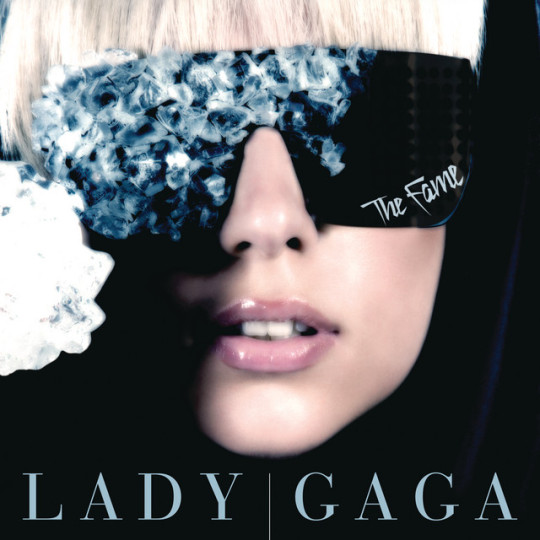
Poker Face
Lady Gaga
33
5
14
20

If We Ever Meet Again
Timbaland, Katy Perry
32
5
9
21

The One That Got Away
Katy Perry
28
35
1
22

Scheiße
Lady Gaga
27
4
1
23

You da One
Rihanna
27
7
2
24

Illest Motherf**ker Alive
JAY-Z, Kanye West
25
4
10
25

Girl Gone Wild
Madonna
23
4
4
1
Katy Perry
294
52
1
30
6
2
Alexandra Burke
146
1
2
2
3
Lady Gaga
140
32
1
5
4
4
Lana Del Rey
128
10
1
5
2
5
Rihanna
99
31
1
9
4
#ton charts#chart#weekly#No1ActDebut#no1debut#Elephant#Alexandra Burke#Alexandra Burke number ones#Erick Morillo number ones#Erick Morillo
1 note
·
View note
Text
#057: Alexandra Burke estreia diretamente na primeira posição com ‘Elephant’ e Katy Perry reentra com ‘E.T.’ na posição No. 2; Coldplay continua com ‘Princess of China’ na posição No. 3
Veja mais informações da 57ª semana da Ton Charts, com detalhes sobre o chart principal de músicas e atos, a evolução das cinco primeiras posições e as músicas mais ouvidas por dia no período.
9 jun 2012
15 jun 2012

057
Alexandra Burke estreia diretamente na primeira posição com ‘Elephant’ e Katy Perry reentra com ‘E.T.’ na posição No. 2; Coldplay continua com ‘Princess of China’ na posição No. 3
1223
+6,4
1223
+6,4
100%
+0
175
+6,4
14
+0
25
+0
1

Elephant
Alexandra Burke, Erick Morillo
1
1
1
106
206
2

E.T.
Katy Perry, Kanye West
52
1
7
105
204
3

Princess of China
Coldplay, Rihanna
22
1
2
82
159
4

Show Me
Usher
1
4
75
146
5
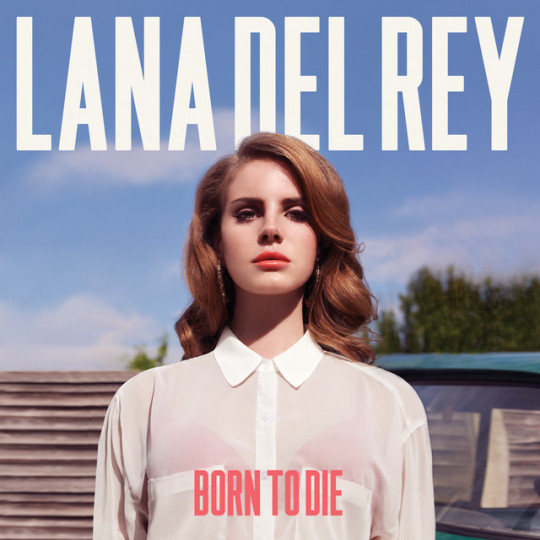
Video Games
Lana Del Rey
2
4
67
130
6

Blue Jeans
Lana Del Rey
2
3
61
119
7

Club Banger Nation
Nicole Scherzinger
3
5
60
117
8

Milk Milk Lemonade
Katy Perry
8
1
2
59
115
9

Electric Feel
Katy Perry
2
1
1
58
113
10
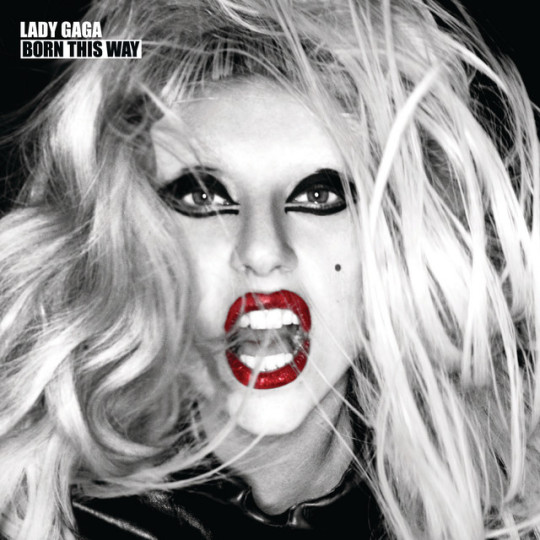
Born This Way
Lady Gaga
9
4
45
87
11

Pearl
Katy Perry
9
11
44
86
12

Right By My Side
Nicki Minaj, Chris Brown
1
12
43
84
13

Heartbreak on Hold
Alexandra Burke
1
13
40
78
14

Cinderella's Eyes
Nicola Roberts
1
14
39
76
15

We All Want Love
Rihanna
6
7
38
74
16

Wonderland
Natalia Kills
11
5
37
72
17

Government Hooker
Lady Gaga
5
2
35
68
18

Roc Me Out
Rihanna
1
18
34
66
19

Poker Face
Lady Gaga
5
14
33
64
20

If We Ever Meet Again
Timbaland, Katy Perry
5
9
32
62
21

The One That Got Away
Katy Perry
35
1
2
28
54
22

Scheiße
Lady Gaga
4
1
1
27
52
23

You da One
Rihanna
7
2
27
52
24

Illest Motherf**ker Alive
JAY-Z, Kanye West
4
10
25
49
25

Girl Gone Wild
Madonna
4
4
23
45
1
Katy Perry
52
1
30
2
294
2
Alexandra Burke
1
2
1
146
3
Lady Gaga
32
1
5
10
140
4
Lana Del Rey
10
1
5
5
128
5
Rihanna
31
1
9
3
99
semanal semana057 AlexandraBurkeNo1 ErickMorilloNo1 AlexandraBurkeHeartbreakOnHoldNo1 HeartbreakOnHoldNo1 ElephantNo1 2012No1 actno1debut
#semanal#AlexandraBurkeNo1#ErickMorilloNo1#AlexandraBurkeHeartbreakOnHoldNo1#HeartbreakOnHoldNo1#ElephantNo1#2012No1#actno1debut
0 notes
Text
Alexandra burke hallelujah instrumental free mp3 download

Alexandra burke hallelujah instrumental free mp3 download for free#
Alexandra burke hallelujah instrumental free mp3 download how to#
Alexandra burke hallelujah instrumental free mp3 download full#
Alexandra burke hallelujah instrumental free mp3 download mp3 download#
Flo Rida (Official Music Video)Īlexandra Burke - The Silence (Official Video)Īlexandra Burke - Hallelujah (Karaoke Version)ĪLEXANDRA STAN - Lemonade (Official Hd Video)Īlexandra Burke - All Night Long ft.
Alexandra burke hallelujah instrumental free mp3 download full#
X Factor 2008 FINAL: Alexandra Burke - Hallelujah: FULL HDĪlexandra Burke | Hallelujah | Christmas CountdownĪlexandra Burke - Bad Boys ft. RSS Feed Powered by Create your own unique website with customizable templates. Fichier multi-pistes au standard General MIDI DEUTSCH : Instrumental MP3 Instrumentalversion des Liedes 'Hallelujah - Alexandra Burke (INSTRUMENTAL)', das durch Alexandra Burke bekannt wurde. The music genre and style category for this MIDI File backing track is Hits of 2011-2020. FRANCAIS : Version instrumentale sans chanteur, ni choeurs, de 'Hallelujah - Alexandra Burke (INSTRUMENTAL)' par Alexandra Burke au format Instrumental MP3. The baffled king composing Hallelujah Hallelujah Hallelujah Hallelujah Hallelujah. Hallelujah was composed by Leonard Cohen and produced as a backing track for Hit Trax by Hands-On MIDI Backing Tracks (United Kingdom). All musical material is re-recorded and does not use in any form the original music or original vocals or any feature of the original recording.
Alexandra burke hallelujah instrumental free mp3 download how to#
To find out even more, including how to control cookies, find here. Alexandra Burke Hallelujah Instrumental Download Musica Aleluia Alexandra Burke Hallelujah Instrumental Download Musica Aleluia. Alexandra Burke Hallelujah Instrumental freeload is Media search engine and does not host any files, No media files are indexed hosted cached or stored on our server, They are located on soundcloud and Youtube, We only help you to search the link source to the other server.
Alexandra burke hallelujah instrumental free mp3 download mp3 download#
GO Mp3Juices » Alexandra Burke Hallelujah mp3 download Results including keyword alexandra burke hallelujah source: dl1. Machine Gun Kelly Pretty Toxic Revolver Free Mp3 Download Lyrics Dua Lipa - Levitating (lyrics)(mp3160k) Nf Options Mp3 Download Jay Z Allure Instrumental Mp3 Download Don Odunze Mp3 Download Jay Z Futw Mp3 Download 2pac 2 Gangsta Mp3 Download Chris Brown. Free alexandra burke hallelujah mp3 music download, easily listen and download alexandra burke hallelujah mp3 files on Mp3Juices. Hallelujah Alexandra Burke Mp3 How To Control Cookies. Alexandra Burke - Hallelujah (Karaoke Version) Sing King 05 November 2019. Fri 18 Jun Alexandra Burke Purchase Right now Ayr Racecourse Ayr Sitting 3 Jul.
Alexandra burke hallelujah instrumental free mp3 download for free#
Download now for FREE singking.link/yt-desc Karaoke sing along of Hallelujah by Alexandra Burke from Sing King Karaoke Stay tuned for brand new karaoke videos by subscribing here. The alexandra-burke-hallelujah have 0 and PT6M10S. Karaoke Hallelujah - Alexandra Burke (X Factor) *Īlexandra Burke - Elephant Alexandra Burke Hallelujah Instrumental Free Mp3 Download. Hallelujah Karaoke MIDI File in the style of Alexandra Burke Hallelujah is a song recorded and released by Alexandra Burke. freeload Vdó, FLV,mp3, Yóu can see a Mass media for free of charge. Get Alexandra Burke Hallelujah MP3 For Nothing in Top Song uploaded by Alex Leo Campbell. Download Mp3 Alexandra Burke - Download Mp3 Alexandra Burke video embed list by Benny Khouri onSunday Januand being read by 1,939 people, 1,264 people give positive ratings about this topics.ĭownload Mp3 Alexandra Burke Video Embed List

0 notes
Text
Research Masterpost
This is my research list for The Alt-Right Playbook. It is a living document - I am typically adding sources faster than I am finishing the ones already on it. Notes and links below the list. Also, please note this does not include the hundreds of articles and essays I’ve read that also inform the videos - this is books, reports, and a few documentaries.
Legend:
Titles in bold -> finished
Titles in italics -> partially finished
*** -> livetweeted as part of #IanLivetweetsHisResearch (asterisks will be a link)
The book I am currently reading will be marked as such.
Media Manipulation & Disinformation Online, by Alice Marwick and Rebecca Lewis
Alternative Influence, by Rebecca Lewis
The Authoritarians, by Bob Altemeyer***
Eclipse of Reason, by Max Horkheimer
Civility in the Digital Age, by Andrea Weckerle
The Origins of Totalitarianism, by Hannah Arendt
On Revolution, by Hannah Arendt
Don’t Think of an Elephant, by George Lakoff
The Shock Doctrine, by Naomi Klein
How Propaganda Works, by Jason Stanley***
This is an Uprising, by Mark and Paul Engler
Neoreaction a Basilisk, by Elizabeth Sandifer
This Nonviolent Stuff'll Get You Killed, by Charles E. Cobb, Jr.
Mistakes Were Made (But Not By Me), by Carol Tavris and Elliot Aronson
Healing from Hate, by Michael Kimmel
The Brainwashing of my Dad, doc by Jen Senko
On Bullshit, by Harry Frankfurt
The Reactionary Mind, by Corey Robin***
Stamped from the Beginning, Ibram X. Kendi
Fascism Today, by Shane Burley
Indoctrination over Objectivity?, by Marrissa S. Ballard
Ur-Fascism, by Umberto Eco
Adult Children of Emotionally Immature Parents, by Lindsay C. Gibson
Anti-Semite and Jew, by Jean-Paul Sartre
Alt-America, by David Neiwert***
The Dictator’s Handbook, by Bruce Bueno de Mesquita & Alastair Smith
Terror, Love, and Brainwashing, by Alexandra Stein
Kaputt, by Curzio Malaparte
The Anatomy of Fascism, by Robert O. Paxton
Neoliberalism and the Far Right, by Neil Davidson and Richard Saull
Trolls Just Want to Have Fun, by Erin E. Buckels, et al
The Entrepreneurial State, by Mariana Mazzucato
Media Manipulation & Disinformation Online, by Alice Marwick and Rebecca Lewis (free: link)
A monstrously useful report from Data & Society which- coupled with Samuel R. Delany’s memoir The Motion of Light in Water - formed the backbone of the Mainstreaming video. I barely scratched the surface of how many techniques the Far Right uses to inflate their power and influence. If you feel lost in a sea of Al-Right bullshit, this will at least help you understand how things got the way they are, and maybe help you discern truth from twaddle.
The Authoritarians, by Bob Altemeyer (free: link) (livetweets)
A free book full of research from Bob Altemeyer’s decades of study into authoritarianism. Altemeyer writes conversationally, even jovially, peppering what could have been a dense and dry work with dad jokes. I wouldn’t say he’s funny (most dads aren’t), but it makes the book blessedly accessible. If you ever wanted a ton of data demonstrating that authoritarianism is deeply correlated with conservatism, this is the book. One of the most useful resources I’ve consumed so far, heavily influencing the entire series but most directly the video on White Fascism. Even has some suggestions for how to actually change the mind of a reactionary, which is kind of the Holy Grail of LeftTube.
(caveats: there is a point in the book where Altemeyer throws a little shade on George Lakoff, and I feel he slightly - though not egregiously - misrepresents Lakoff’s arguments)
Don’t Think of an Elephant, by George Lakoff
An extremely useful book about framing. Delves into the differences between the American Right and Left when it comes to messaging, how liberal politicians tend to have degrees in things like Political Science and Rhetoric, where conservatives far more often have degrees in Marketing. This leads to two different cultures, where liberals have Enlightenment-style beliefs that all you need is good ideas and conservatives know an idea will only be popular if you know how to sell it. He gets into the nuts and bolts of how to keep control of a narrative, because the truth is only effective if the audience recognizes it as such. Kind of staggering how many Democrats swear by this book while blatantly taking none of its advice. Lakoff has been all over the series since the first proper video.
(caveats: several. Lakoff seemingly believes the main difference between the Right and Left is in our default frames, and that swaying conservatives amounts to little more than finding better ways to make the same arguments. he deeply underestimates the ideological divide between Parties, and some of his advice reads as tips for making debates more pleasant but no more productive. he also makes a passing comparison between conservatism and Islam that means well but is a gross and kinda racist false equivalence)
How Propaganda Works, by Jason Stanley (livetweets)
A slog. Many useful concepts, and directly referenced in the White Fascism video. But could have said everything it needed to say in half as many pages. Stanley seems dedicated to framing everything in epistemological terms, not appealing to morality or sentiment, which means huge sections of the book are given over to “proving” democracy is a good thing using only philosophical concepts, when “democracy good” is probably something his readership already accepts. Also has a frustrating tendency to begin every paragraph with a brief summary of the previous paragraph. When he actually talks about, you know, how propaganda works, it’s very useful, and I don’t regret reading it. But I don’t entirely recommend it. Seems written for an imagined PhD review board. Might be better off reading my livetweets.
Neoreaction a Basilisk, by Elizabeth Sandier
A trip. Similar to Jason Stanley, Sandifer is dedicated to “disproving” a number of Far Right ideologies - from transphobia to libertarianism to The Singularity - in purely philosophical terms. The difference is, she’s having fun with it. I won’t pretend the title essay - a 140-page mammoth - didn’t lose me several times, and someone had to remind which of its many threads was the thesis. And some stretches are dense, academic writing punctuated with vulgarity and (actually quite clever) jokes, which doesn’t always average out to the playfully heady tone she’s going for. But, still, frequently brilliant and never less than interesting. There is something genuinely cathartic about a book that begins with the premise that we all fear but won’t let ourselves meaningfully consider - that we will lose the fight with the Right and climate change is going to kill us all - and talks about what we can do in that event. I felt I didn’t even have to agree with the premise to feel strangely empowered by it. Informed the White Fascism video’s comments on transphobia as the next frontier of bigotry since failing to prevent marriage equality.
On Bullshit, by Harry Frankfurt
Was surprised to find this isn’t properly a book, just a printed essay. Highly relevant passage that helped form my description of 4chan in The Card Says Moops: “What tends to go on in a bull session is that the participants try out various thoughts and attitudes in order to see how it feels to hear themselves saying such things and in order to discover how others respond, without its being assumed that they are committed to what they say: it is understood by everyone in a bull session that the statements people make do not necessarily reveal what they really believe or how they really feel. The main point is to make possible a high level of candor and an experimental or adventuresome approach to the subjects under discussion. Therefore provision is made for enjoying a certain irresponsibility, so that people will be encouraged to convey what is on their minds without too much anxiety that they will be held to it. [paragraph break] Each of the contributors to a bull session relies, in other words, upon a general recognition that what he expresses or says is not to be understood as being what he means wholeheartedly or believes unequivocally to be true. The purpose of the conversation is not to communicate beliefs.”
The Reactionary Mind, by Corey Robin (livetweets)
Another freakishly useful book, and the basis for Always a Bigger Fish and The Origins of Conservatism. Jumping into the history of conservative thought, going all the way back to Thomas Hobbes, to stress that conservatism is, and always has been, about preserving social hierarchies and defending the powerful. Robin dissects thinkers who heavily influenced conservatism, from Edmund Burke and Friedrich Nietzsche to Carl Menger and Ayn Rand, and finally concluding with Trump himself. There’s a lot of insight into how the conservative mind works, though precious little comment on what we can do about it, which somewhat robs the book of a conclusion. Still, the way it bounces off of Don’t Think of an Elephant and The Authoritarians really brings the Right into focus.
Fascism Today, by Shane Burley
Yet another influence on the White Fascism video. Bit of a mixed bag. The opening gives a proper definition of fascism, which is extremely useful. Then the main stretch delves into the landscape of modern fascism, from Alt-Right to Alt-Lite to neofolk pagans to the Proud Boys and on and on. Sometimes feels overly comprehensive, but insights abound on the intersections of all these belief systems (Burley pointing out that the Alt-Right is, in essence, the gentrification of working-class white nationalists like neo-Nazi skinheads and the KKK was a real eye-opener). But the full title is Fascism Today: What it is and How to End it, and it feels lacking in the second part. Final stretch mostly lists a bunch of efforts to address fascism that already exist, how they’ve historically been effective, and suggestions for getting involved. Precious few new ideas there. And maybe the truth is that we already have all the tools we need to fight fascism and we simply need to employ them, and being told so is just narratively unsatisfying. Or maybe it’s a structural problem with the book, that it doesn’t reveal a core to fascism the way Altemeyer reveals a core to authoritarianism and Robin reveals a core to conservatism, so I don’t come away feeling like I get fascism well enough to fight it. But, also, Burley makes it clear that modern fascism is a rapidly evolving virus, and being told that old ways are still the best ways isn’t very satisfying. If antifascism isn’t evolving at least as rapidly, it doesn’t seem like we’re going to win.
(caveats: myriad. for one, Burley repeatedly quotes Angela Nagle’s Kill All Normies, which does not inspire confidence. he also talks about “doxxing fascists” as a viable strategy without going into the differences between “linking a name to a face at a public event” and “hacking someone’s email to publicly reveal their bank information,” where the former is the strategy that fights fascism and the latter is vigilantism that is practiced widely on the Right and only by the worst actors on the Left. finally, the one section where Burley discusses an area I had already thoroughly researched was GamerGate, and he got quite a few facts wrong, which makes me question how accurate all the parts I hadn’t researched were. I don’t want to drive anyone away from the book, because it was still quite useful, but I recommend reading it only in concert with a lot of other sources so you don’t get a skewed perspective.)
Healing from Hate, by Michael Kimmel
(Michael Kimmel, it turns out, is a scumbag. This book’s main thesis is that we need to look at violent extremism through the lens of toxic masculinity, so Kimmel’s toxic history with women is massively disappointing. Book itself is, in many ways, good, but, you know, retweets are not endorsement.)
A 4-part examination of how men get into violent extremism through the lens of the organizations that help them get out: EXIT in Germany and Sweden, Life After Hate in the US, and The Quilliam Foundation in Europe and North America. Emphasizing that entry into white nationalism - and, to an extent, jihadism - is less ideological than social. Young men enter these movements out of a need for community, purpose, and a place to put their anger. They feel displaced and mistreated by society - and often, very tangibly, are - and extremism offers a way to prove their manhood. Feelings of emasculation is a major theme. The actual politics of extremism are adopted gradually. They are, in a sense, the price of admission for the community and the sense of purpose. The most successful exit strategies are those that address these feelings of loneliness and emasculation and build social networks outside the movement, and not ones that address ideology first - the ideology tends to wither with the change in environment. The book itself can be a bit repetitive, but these observations are very enlightening.
(caveats: the final chapter on militant Islam is deeply flawed. Kimmel clearly didn’t get as much access to Qulliam as he had to EXIT and Life After Hate, so his data is based far less on direct interviews with counselors and former extremists and much more on other people’s research. despite the chapter stressing that a major source of Muslim alienation is racism, Kimmel focuses uncomfortably much on white voices - the majority of researchers he quotes are white Westerners, and the few interviews he manages are mostly with white converts to Islam rather than Arabs or South Asians. all in all, the research feels thinner, and his claims about militant Islam seem much more conjectural when they don’t read as echos of other people’s opinions.)
Terror, Love and Brainwashing, by Alexandra Stein
A look at totalitarian governments and cults through the lens of attachment theory. While not explicitly about the Far Right, it’s interesting to see the overlap between this and Healing from Hate. Stein stresses that the control dynamics she discusses are not exclusive to cults, and are, in fact, the same ones as in abusive relationships; cults are just the most extreme version. So you can see many similar dynamics in Far Right organizations, like the Aryan Nations or the Proud Boys. It’s made me curious how many of these dynamics are in play in the distributed, less controlled environment of online extremism, and makes me want to look further into the subject before drawing conclusions.
(caveats: book is, as with How Propaganda Works, sometimes a slog and rather repetitive. I clocked a 4-page stretch in chapter 8 where Stein did not say a single thing that hadn’t been said multiple times in previous chapters. also, when talking about people coerced into highly-controlled lifestyles, she offhandedly includes “prostitutes” among them? it’s that liberal conflation of sex work and trafficking which is really not cool. this isn’t a major point, just something to notice while you read it.)
Alt-America, by David Neiwert (livetweets)
A look at the actual formation of the Alt-Right, and the history that led up to it: the Militia and Patriot movements of the 90′s, the Tea Party, the rise of Alex Jones and Glenn Beck, and so on. Having been steeped in the rhetoric and tactics of the Far Right for so long, someone doing the work of sitting down and putting it all in chronological order is immensely helpful. Generally clear and well-written, too, and would be an easy read if not for how goddamn depressing the content is. Has an unfortunate final 7 pages, where Neiwert starts recommending actual policy. Falls into the usual “have empathetic conversations with genuine conservatives to turn them against the fascist wing taking over their party,” not recognizing the ways in which conservatism is continuous with fascism, nor the ways that trying to appeal to moderate conservatives alienates the people whose rights they deny. Means an extremely valuable book leaves a bad taste in the final stretch, but everything up to then is aces.
434 notes
·
View notes
Text
Innuendo Studios Research Masterpost - With More Links
This is my research list for The Alt-Right Playbook. It is a living document - I am typically adding sources faster than I am finishing the ones already on it. Notes and links below the list. Also, please note this does not include the hundreds of articles and essays I’ve read that also inform the videos - this is books, reports, and a few documentaries. Legend: Titles in bold -> finished Titles in italics -> partially finished *** -> livetweeted as part of #IanLivetweetsHisResearch (asterisks will be a link) The book I am currently reading will be marked as such. Media Manipulation & Disinformation Online, by Alice Marwick and Rebecca Lewis Alternative Influence, by Rebecca Lewis The Authoritarians, by Bob Altemeyer*** Eclipse of Reason, by Max Horkheimer Civility in the Digital Age, by Andrea Weckerle The Origins of Totalitarianism, by Hannah Arendt On Revolution, by Hannah Arendt Don’t Think of an Elephant, by George Lakoff The Shock Doctrine, by Naomi Klein How Propaganda Works, by Jason Stanley*** This is an Uprising, by Mark and Paul Engler Neoreaction a Basilisk, by Elizabeth Sandifer (Patreon) This Nonviolent Stuff’ll Get You Killed, by Charles E. Cobb, Jr. Mistakes Were Made (But Not By Me), by Carol Tavris and Elliot Aronson Healing from Hate, by Michael Kimmel The Brainwashing of my Dad, documentary by Jen Senko On Bullshit, by Harry Frankfurt The Reactionary Mind, by Corey Robin*** Stamped from the Beginning, Ibram X. Kendi Fascism Today, by Shane Burley Indoctrination over Objectivity?, by Marrissa S. Ballard Ur-Fascism, by Umberto Eco Adult Children of Emotionally Immature Parents, by Lindsay C. Gibson Anti-Semite and Jew, by Jean-Paul Sartre Alt-America, by David Neiwert The Dictator’s Handbook, by Bruce Bueno de Mesquita & Alastair Smith Terror, Love, and Brainwashing, by Alexandra Stein <- (currently reading) Kaputt, by Curzio Malaparte The Motion of Light in Water, by Samuel R. Delany Media Manipulation & Disinformation Online, by Alice Marwick and Rebecca Lewis (free: link) A monstrously useful report from Data & Society which- coupled with Samuel R. Delany’s memoir The Motion of Light in Water - formed the backbone of the Mainstreaming video. I barely scratched the surface of how many techniques the Far Right uses to inflate their power and influence. If you feel lost in a sea of Alt-Right bullshit, this will at least help you understand how things got the way they are, and maybe help you discern truth from twaddle. The Authoritarians, by Bob Altemeyer (free: link) (livetweets) A free book full of research from Bob Altemeyer’s decades of study into authoritarianism. Altemeyer writes conversationally, even jovially, peppering what could have been a dense and dry work with dad jokes. I wouldn’t say he’s funny (most dads aren’t), but it makes the book blessedly accessible. If you ever wanted a ton of data demonstrating that authoritarianism is deeply correlated with conservatism, this is the book. One of the most useful resources I’ve consumed so far, heavily influencing the entire series but most directly the video on White Fascism. Even has some suggestions for how to actually change the mind of a reactionary, which is kind of the Holy Grail of LeftTube. (caveats: there is a point in the book where Altemeyer throws a little shade on George Lakoff, and I feel he slightly - though not egregiously - misrepresents Lakoff’s arguments) Don’t Think of an Elephant, by George Lakoff An extremely useful book about framing. Delves into the differences between the American Right and Left when it comes to messaging, how liberal politicians tend to have degrees in things like Political Science and Rhetoric, where conservatives far more often have degrees in Marketing. This leads to two different cultures, where liberals have Enlightenment-style beliefs that all you need is good ideas and conservatives know an idea will only be popular if you know how to sell it. He gets into the nuts and bolts of how to keep control of a narrative, because the truth is only effective if the audience recognizes it as such. Kind of staggering how many Democrats swear by this book while blatantly taking none of its advice. Lakoff has been all over the series since the first proper video. (caveats: several. Lakoff seemingly believes the main difference between the Right and Left is in our default frames, and that swaying conservatives amounts to little more than finding better ways to make the same arguments. he deeply underestimates the ideological divide between Parties, and some of his advice reads as tips for making debates more pleasant but no more productive. he also makes a passing comparison between conservatism and Islam that means well but is a gross and kinda racist false equivalence) How Propaganda Works, by Jason Stanley (livetweets) A slog. Many useful concepts, and directly referenced in the White Fascism video. But could have said everything it needed to say in half as many pages. Stanley seems dedicated to framing everything in epistemological terms, not appealing to morality or sentiment, which means huge sections of the book are given over to “proving” democracy is a good thing using only philosophical concepts, when “democracy good” is probably something his readership already accepts. Also has a frustrating tendency to begin every paragraph with a brief summary of the previous paragraph. When he actually talks about, you know, how propaganda works, it’s very useful, and I don’t regret reading it. But I don’t entirely recommend it. Seems written for an imagined PhD review board. Might be better off reading my livetweets. Neoreaction a Basilisk, by Elizabeth Sandifer (Patreon) A trip. Similar to Jason Stanley, Sandifer is dedicated to “disproving” a number of Far Right ideologies - from transphobia to libertarianism to The Singularity - in purely philosophical terms. The difference is, she’s having fun with it. I won’t pretend the title essay - a 140-page mammoth - didn’t lose me several times, and someone had to remind which of its many threads was the thesis. And some stretches are dense, academic writing punctuated with vulgarity and (actually quite clever) jokes, which doesn’t always average out to the playfully heady tone she’s going for. But, still, frequently brilliant and never less than interesting. There is something genuinely cathartic about a book that begins with the premise that we all fear but won’t let ourselves meaningfully consider - that we will lose the fight with the Right and climate change is going to kill us all - and talks about what we can do in that event. I felt I didn’t even have to agree with the premise to feel strangely empowered by it. Informed the White Fascism video’s comments on transphobia as the next frontier of bigotry since failing to prevent marriage equality. On Bullshit, by Harry Frankfurt Was surprised to find this isn’t properly a book, just a printed essay. Highly relevant passage that helped form my description of 4chan in The Card Says Moops: “What tends to go on in a bull session is that the participants try out various thoughts and attitudes in order to see how it feels to hear themselves saying such things and in order to discover how others respond, without its being assumed that they are committed to what they say: it is understood by everyone in a bull session that the statements people make do not necessarily reveal what they really believe or how they really feel. The main point is to make possible a high level of candor and an experimental or adventuresome approach to the subjects under discussion. Therefore provision is made for enjoying a certain irresponsibility, so that people will be encouraged to convey what is on their minds without too much anxiety that they will be held to it. [paragraph break] Each of the contributors to a bull session relies, in other words, upon a general recognition that what he expresses or says is not to be understood as being what he means wholeheartedly or believes unequivocally to be true. The purpose of the conversation is not to communicate beliefs.” The Reactionary Mind, by Corey Robin (livetweets) Another freakishly useful book, and the basis for Always a Bigger Fish and The Origins of Conservatism. Jumping into the history of conservative thought, going all the way back to Thomas Hobbes, to stress that conservatism is, and always has been, about preserving social hierarchies and defending the powerful. Robin dissects thinkers who heavily influenced conservatism, from Edmund Burke and Friedrich Nietzsche to Carl Menger and Ayn Rand, and finally concluding with Trump himself. There’s a lot of insight into how the conservative mind works, though precious little comment on what we can do about it, which somewhat robs the book of a conclusion. Still, the way it bounces off of Don’t Think of an Elephant and The Authoritarians really brings the Right into focus. Fascism Today, by Shane Burley Yet another influence on the White Fascism video. Bit of a mixed bag. The opening gives a proper definition of fascism, which is extremely useful. Then the main stretch delves into the landscape of modern fascism, from Alt-Right to Alt-Lite to neofolk pagans to the Proud Boys and on and on. Sometimes feels overly comprehensive, but insights abound on the intersections of all these belief systems (Burley pointing out that the Alt-Right is, in essence, the gentrification of working-class white nationalists like neo-Nazi skinheads and the KKK was a real eye-opener). But the full title is Fascism Today: What it is and How to End it, and it feels lacking in the second part. Final stretch mostly lists a bunch of efforts to address fascism that already exist, how they’ve historically been effective, and suggestions for getting involved. Precious few new ideas there. And maybe the truth is that we already have all the tools we need to fight fascism and we simply need to employ them, and being told so is just narratively unsatisfying. Or maybe it’s a structural problem with the book, that it doesn’t reveal a core to fascism the way Altemeyer reveals a core to authoritarianism and Robin reveals a core to conservatism, so I don’t come away feeling like I get fascism well enough to fight it. But, also, Burley makes it clear that modern fascism is a rapidly evolving virus, and being told that old ways are still the best ways isn’t very satisfying. If antifascism isn’t evolving at least as rapidly, it doesn’t seem like we’re going to win. (caveats: myriad. For one, Burley repeatedly quotes Angela Nagle’s Kill All Normies, which does not inspire confidence. He also talks about “doxxing fascists” as a viable strategy without going into the differences between “linking a name to a face at a public event” and “hacking someone’s email to publicly reveal their bank information,” where the former is the strategy that fights fascism and the latter is vigilantism that is practiced widely on the Right and only by the worst actors on the Left. Finally, the one section where Burley discusses an area I had already thoroughly researched was GamerGate, and he got quite a few facts wrong, which makes me question how accurate all the parts I hadn’t researched were. I don’t want to drive anyone away from the book, because it was still quite useful, but I recommend reading it only in concert with a lot of other sources so you don’t get a skewed perspective.) Healing from Hate, by Michael Kimmel (Michael Kimmel, it turns out, is a scumbag. This book’s main thesis is that we need to look at violent extremism through the lens of toxic masculinity, so Kimmel’s toxic history with women is massively disappointing. Book itself is, in many ways, good, but, you know, retweets are not endorsement.) A 4-part examination of how men get into violent extremism through the lens of the organizations that help them get out: EXIT in Germany and Sweden, Life After Hate in the US, and The Quilliam Foundation in Europe and North America. Emphasizing that entry into white nationalism - and, to an extent, jihadism - is less ideological than social. Young men enter these movements out of a need for community, purpose, and a place to put their anger. They feel displaced and mistreated by society - and often, very tangibly, are - and extremism offers a way to prove their manhood. Feelings of emasculation is a major theme. The actual politics of extremism are adopted gradually. They are, in a sense, the price of admission for the community and the sense of purpose. The most successful exit strategies are those that address these feelings of loneliness and emasculation and build social networks outside the movement, and not ones that address ideology first - the ideology tends to wither with the change in environment. The book itself can be a bit repetitive, but these observations are very enlightening. (caveats: the final chapter on militant Islam is deeply flawed. Kimmel clearly didn’t get as much access to Qulliam as he had to EXIT and Life After Hate, so his data is based far less on direct interviews with counselors and former extremists and much more on other people’s research. despite the chapter stressing that a major source of Muslim alienation is racism, Kimmel focuses uncomfortably much on white voices - the majority of researchers he quotes are white Westerners, and the few interviews he manages are mostly with white converts to Islam rather than Arabs or South Asians. all in all, the research feels thinner, and his claims about militant Islam seem much more conjectural when they don’t read as echos of other people’s opinions.)
2 notes
·
View notes
Video
youtube
Alexandra Burke - Elephant (Official Audio) ft. Erick Morillo
0 notes
Text
Alexandra Burke - Elephant (feat. Erick Morillo) https://t.co/p8DBZ4XjVA
Alexandra Burke - Elephant (feat. Erick Morillo) https://t.co/p8DBZ4XjVA
— d3athstardisco (@d3athstardisco) August 3, 2020
0 notes
Text
Strictly Come Dancing viewers rush to defend Alexandra Burke against constant trolling – as awkward 'elephant in the room' interview emerges online
Alexandra Burke has had a tough few weeks[Wenn] The X Factor winner has been forced to defend herself against constant speculation she is feuding with dance partner Gorka Marquez – amid his rumoured romance with Gemma Atkinson. She has also faced claims she had a meltdown backstage, after dropping to the bottom two during the last instalment of the BBC series. However, fans have flocked to…
View On WordPress
0 notes
Text
Alexandra Burke: Five Songs That We Like From The Former X Factor Winner
Alexandra Burke: Five Songs That We Like From The Former X Factor Winner
Alexandra Burke – Start Without You ft. Laza Morgan Alexandra Burke – All Night Long ft. Pitbull Alexandra Burke – The Silence Alexandra Burke – Bad Boys ft. Flo Rida…
View On WordPress
#alexandra burke elephant#alexandra burke hallelujah#alexandra burke let it go#alexandra burke the silence
0 notes
Text
Alexandra Burke - Elephant (feat. Erick Morillo) https://t.co/p8DBZ4FJ42
Alexandra Burke - Elephant (feat. Erick Morillo) https://t.co/p8DBZ4FJ42
— Benjamin Reyna (@d3athstardisco) May 31, 2020
0 notes
